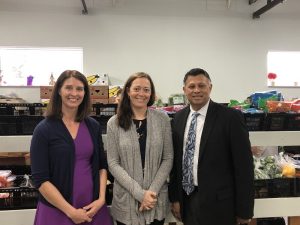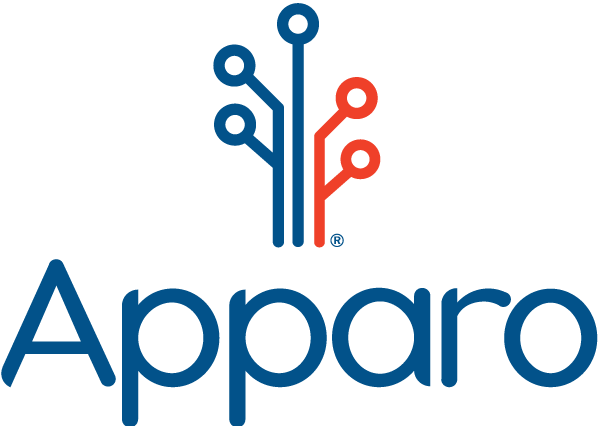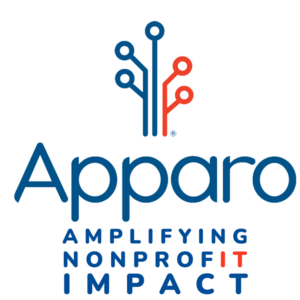FeedNC leadership had plans to expand their services and recognized the importance of data management.
In late 2018, FeedNC (then, Mooresville Soup Kitchen) reached out to Apparo for support in choosing the best data management tool to replace their use of Little Green Light (LGL). They have had plans to expand their services and know that data management is critical.

Apparo matched FeedNC to independent volunteer, Johann Vaz. The extensive market research conducted during this Community Impact Project led to the determination that staying with LGL, but leveraging new functionality would actually be the best way to meet FeedNC’s needs. As Lara Ingram, FeedNC Executive Director, explains, “We did a really exhaustive search and found that LGL is really a good product with a lot to offer. I had really high expectations. The project helped me understand that we had the right product, at the right price.”
We spoke recently with Lara to learn more about the impact of this project over the course of the past year since it was completed.
See PDF of project Impact Update snapshot.
The use of LGL online forms for pantry re-certification has saved FeedNC staff the equivalent of nearly 9 weeks of work time.
Twice a year, 700 households must obtain re-certification for access to FeedNC pantries. Before implementing the LGL form, because of data entry requirements, this process took approximately 20 minutes per paper application. This added up to a total of more than 450 hours of time a year. Today that process has decreased by nearly 75%. “After implementing LGL forms, we have been able to decrease the time per application by approximately 15 minutes,” explains Lara.
FeedNC culinary program students and volunteers, as well as the staff supporting them, also benefit from meaningful time savings.
In the past, intake of new students and volunteers was cumbersome for FeedNC staff. Use of the forms is saving them 20+ hours a year. “Before we used the online forms, our staff was dealing with voicemails, calling people back 3-4 times, trying to track them down, missing returned calls,” explains Laura. “Sometimes people would just show up, hoping to meet with the right person. It was a waste of everyone’s time.”
Volunteer time tracking is now also tracked via a form, saving time for 200+ volunteers and the coordinator who once had to deal with their paper tracking.
While pantry guests had to be trained to complete the forms, it proved not to be a challenge in terms of skills or access to technology. The process is also greatly appreciated by their guests who can now access the form at their convenience, rather than traveling to FeedNC during office hours.
“I value technology so much,” shares Lara. “It’s frustrating to me that people think our guests are not resourceful enough to use tech, and I’m thankful we proved those people otherwise. It’s a misnomer to think that our clients don’t have phones, they all do, and they need to be able to fill out online applications to survive in this age.”
“There are a lot of things in life that you want to take on your own schedule, when you have time, and they could not do that with our forms. Now, they no longer have to get here when we are open, which used be hard with limited access to transportation. Our guests love the process online and appreciate they can do it at home whenever they want.”
Freed time, improved ability to fundraise, and cultural shift towards embracing technology make FeedNC’s growth goals achievable.
“Everything about our processes is more efficient now,” explains Lara. “It has given us so much time back. We just went through a successful rebrand that took a large part of my time. If I would have been dealing with paper and other inefficient processes, it would have been so much harder to accomplish. Because of this project, I am able to focus on what we need for our growth plans, including expanding our pantry from one day a week to five. Given the growing demand, we could potentially serve five times as many people.”
A capital campaign is another important component to FeedNC’s growth plans and, as Lara explains, “we will rely on LGL’s form functionality for donors.”
“We have a lot of goals around expanding our programming and being more to our community, and to achieve them we need to be able to use tech effectively. We’ve made an organizational shift and now technology is a part of our work,” Lara shares.


